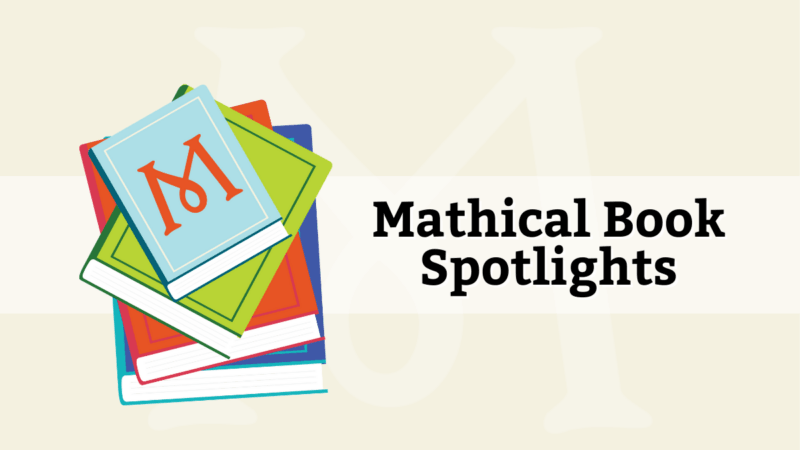The following review of 2019 Mathical Honor Book Press Here by Hervé Tullet was submitted by Mathical Selection Committee member Dr. Herbert Ginsburg.
Press Here: Magical, Minimalist, Mathematical

Reading Press Here, little children will willingly surrender to the magic that pulls mathematics from its hat.
The book begins with a page showing one large yellow dot and the single word, “Ready?” Nothing else. No instructions. But neither child nor adult needs any. Forge ahead! The next page shows what appears to be the same dot and an instruction to turn the page. Very straightforward. I could do the art myself!

But then, when the child turns the page, there are two yellow dots, one in exactly the same place as the one on the previous page and another to its left. But the child sees much more than the literal content of the new page, namely two dots. She sees that the original dot remained and one more appears! Pressing the original dot produced another dot. Magic!
Although the adult knows that magic is not really involved (but should not say so), the child may be a believer, may harbor doubts, or may suspend disbelief for the purpose of enjoying the story (just as the 7-year-old is willing to accept the tooth fairy and her money).
The book goes on in this vein. One page shows three dots, red, yellow, and blue, with the instruction, “Five quick taps on the yellow…” The magical result: a column of five yellow dots appears on the next page, along with the original red and blue. Imagine what happens next when you tap on the red five times and do the same for the blue.
In this manner, Press Here introduces ideas of number, direction (left, right, up, down), organized and disordered arrays, pattern and violation of pattern, sets and subsets, temporal sequence, and size. Each time, the child’s actions (tapping, pressing, even tilting the book) produce a magical result.
Press Here introduces ideas of number, direction, organized and disordered arrays, pattern and violation of pattern, sets and subsets, temporal sequence, and size. |
The book introduces mathematical thinking partly through instructions that include words like “left,” and “five quick taps,” and “shake the book one more time.” But, the real magic is that the book says nothing at all about the result that the magic produced. After you make your five quick taps, you see the “result” appear on the next page, but the text ignores the product and instead gives the instruction for the action that will lead to the next page. Is the text’s willful silence a deficiency? No! Because the result is unexpected the child and adult will, I think, inevitably be alert for it, scrutinize it, think about it, and discuss it in mathematical terms because the changes (except for some involving color) are all mathematical transformations—involving number, position, size, and all the rest—of the objects on the original page.
Press Here is at once magical, minimalist, mathematical, whimsical, ingenious, and totally enjoyable. It is the perfect opposite of didactic.

Press Here
By Hervé Tullet
Chronicle Books, 2011
2019 Mathical Honor Book, PreK
Dr. Herbert Ginsburg is the Jacob H. Schiff Foundation Professor Emeritus of Psychology and Education at Teachers College, Columbia University. He has conducted basic research on the development of mathematical thinking, with particular attention to young children, disadvantaged populations, and cultural similarities and differences. He has drawn on contemporary research to create mathematics activities (Big Math for Little Kids) and storybooks for young children, tests of mathematical thinking, and video workshops to enhance teachers’ understanding of students’ mathematics learning. He is now developing materials designed to help teachers and parents engage in mathematical book reading with their children.
